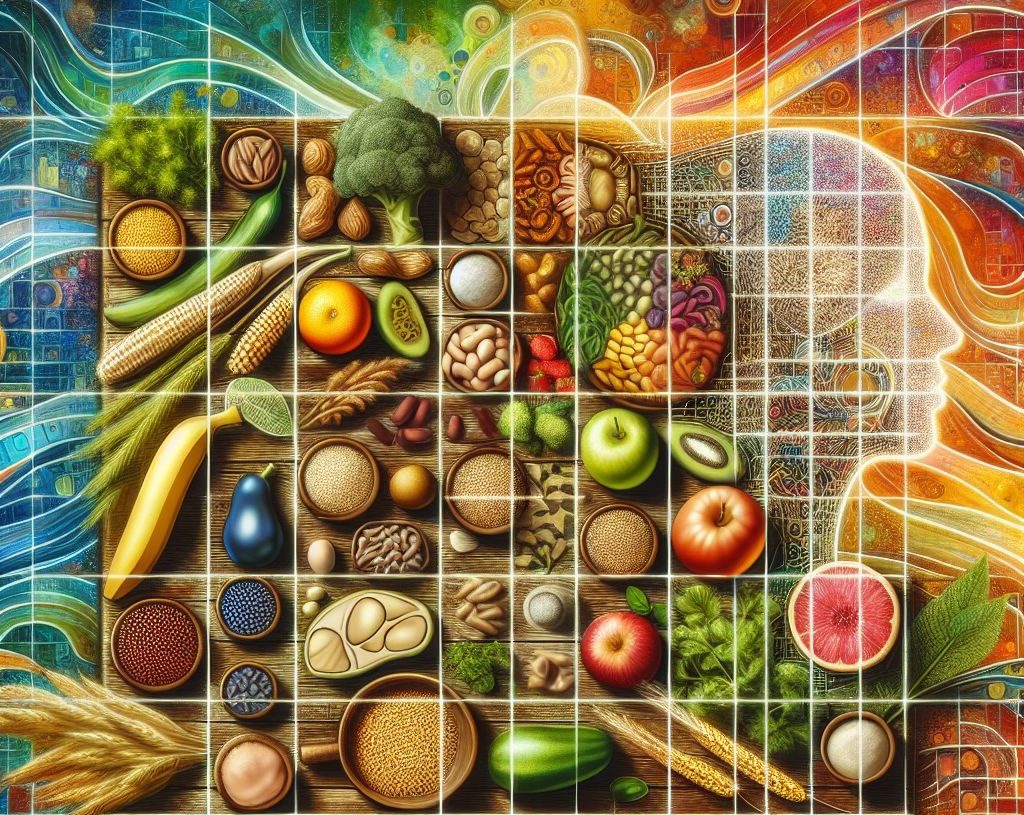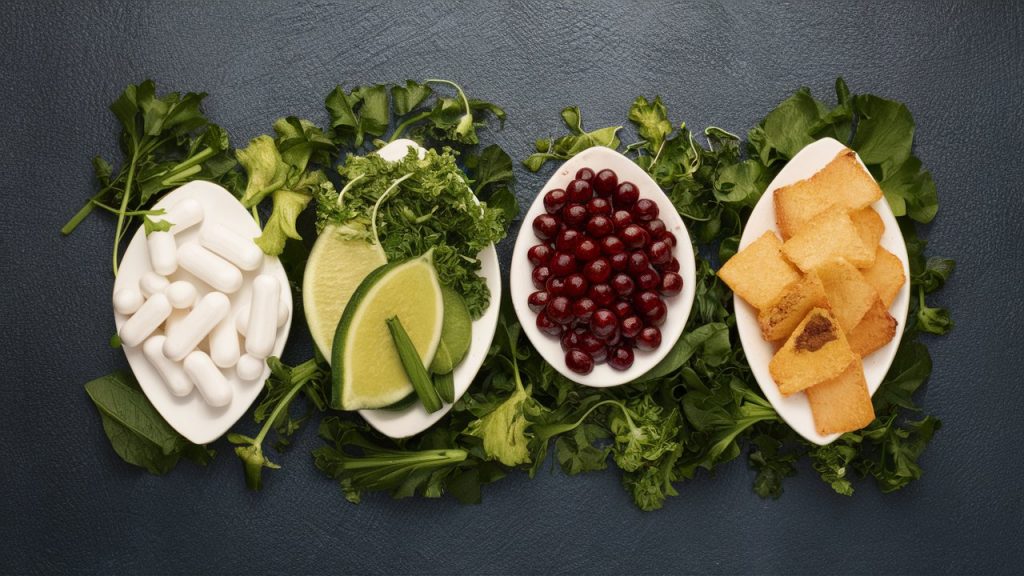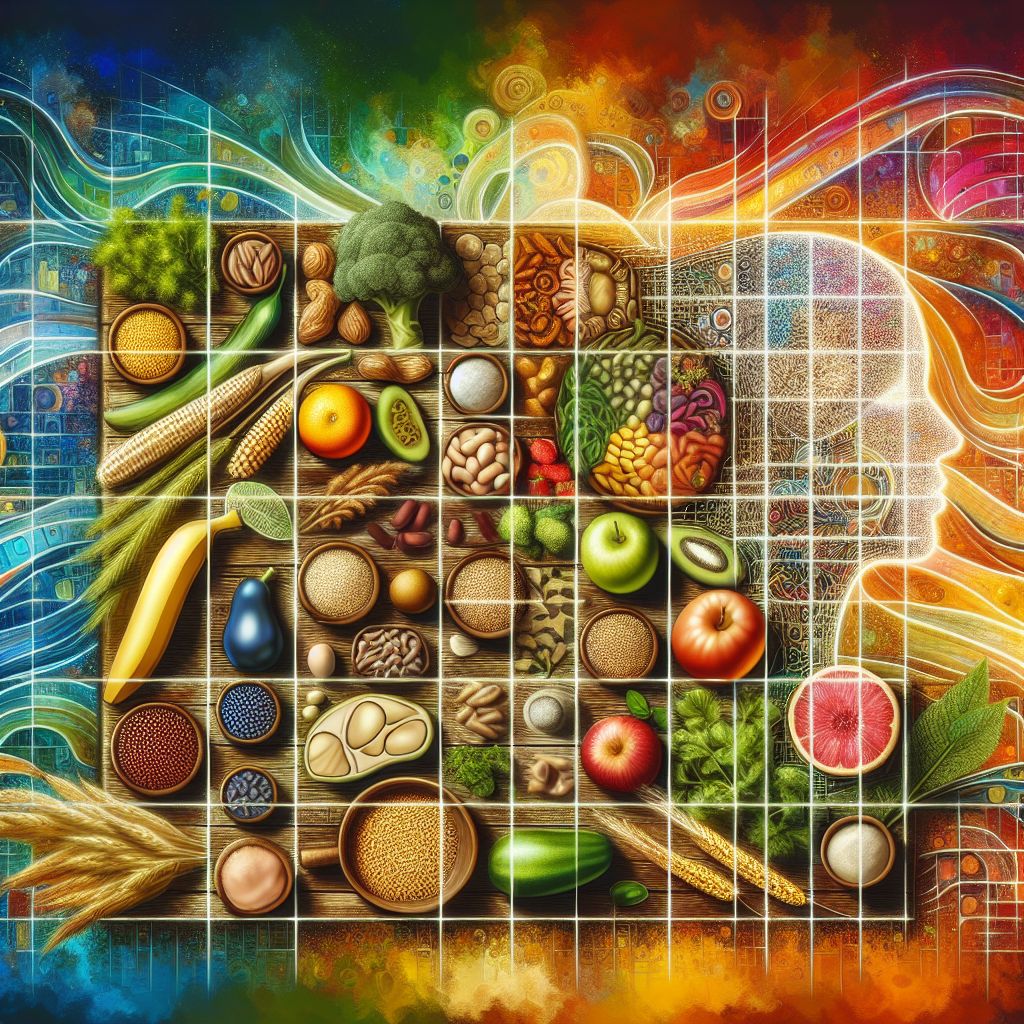Major Points of Probiotics
- Probiotics are crucial for a healthy gut, and vegans have a wide range of plant-based options.
- Fermented foods like sauerkraut, kimchi, and tempeh are packed with vegan probiotics and can be easily added to your diet.
- Dairy-free yogurts made from nuts or coconut are also great sources of vegan probiotics.
- Supplements can be a handy way to make sure you’re getting enough probiotics, especially if you have dietary restrictions.
- Combining probiotics with prebiotics found in foods like garlic, onions, and bananas can make them more effective.
Uncover the Probiotic Potential of Plant-Based Foods
Probiotics should be one of the first things you think of when you think about keeping your gut healthy. These tiny microorganisms are powerful soldiers in the fight for balanced digestion and a strong immune system. And the best part? You don’t need dairy to get them. Plant-based diets are full of foods rich in probiotics that are not only good for your gut, but also for the planet.
Probiotics for a Vegan Gut
What’s the big deal about probiotics? These are the good bacteria that live in your gut. They help you digest your food, absorb the nutrients you need, and keep the bad bacteria in check. If you’re on a vegan diet, probiotics can help you maintain a healthy gut and feel your best.
Enhancing Digestion and Immunity with Non-Dairy Choices
Crucially, for those who adhere to a vegan diet or have lactose intolerances, there are a host of probiotic-rich foods that are entirely plant-based. Not only is it easy to include these in your diet, but it’s also delicious. Your gut—and your palate—will be grateful.
Why Your Gut Needs Probiotics
Probiotics are the uncelebrated champions of your gut. They quietly maintain the balance in your gut, making sure everything functions as it should. And if you’re vegan, it’s important to note that these tiny helpers aren’t exclusive to dairy products. They’re plentiful in plant-based foods, so you can reap all the benefits for your gut without sacrificing your dietary preferences.
For instance, research in the ‘International Journal of Food Sciences and Nutrition’ found that kimchi, a traditional fermented Korean dish made from vegetables, had considerable probiotic properties that could improve digestive health.
The reasoning behind this is simple: a diverse microbiome is a healthy microbiome. And in terms of diversity, vegan probiotic sources are rich. They introduce various strains of bacteria to your gut, which can enhance your health in many ways.
Understanding the Relationship Between Probiotics and Gut Health
Probiotics are live microorganisms that, when ingested in sufficient quantities, offer health benefits beyond just basic nutrition. They aid your body in nutrient absorption, defend against harmful organisms, and even assist in regulating your immune system. Consuming a range of probiotic sources is crucial for cultivating a strong and diverse gut microbiome.
Comparing Plant-Based and Dairy Probiotics: What Sets Them Apart?
The main contrast between plant-based and dairy probiotics is where they come from. Dairy probiotics are typically derived from fermented milk foods such as yogurt and kefir. On the other hand, plant-based probiotics come from fermented veggies, fruits, and grains. This makes them a perfect match for a vegan eating plan and for those who are lactose intolerant or allergic to milk.
A Look at Probiotics in Vegan Foods
Fermented Foods: From Sauerkraut to Kimchi and More
Let’s explore the fascinating world of fermented foods. These aren’t just a passing fad; fermented foods are traditional foods that people have been eating all over the world for millennia. The process of fermentation does more than just keep these foods from going bad; it also boosts their nutritional profile by increasing the amount of probiotics they contain.
Here are some fermented foods you should consider adding to your shopping list:
- Sauerkraut – This is a probiotic-rich food made only from cabbage and salt.
- Kimchi – This is a spicy mix of fermented vegetables that is a staple in Korea.
- Tempeh – This is a product of fermented soy that is a great source of protein and is packed with probiotics.
- Miso – This is a seasoning from Japan that is made from fermented soybeans and is great for soups and sauces.
- Kombucha – This is a tangy fermented tea that is a refreshing way to increase your intake of probiotics.
These foods are not only good for your gut, but they’re also versatile in the kitchen. You can add sauerkraut to your salads, use kimchi to make a stir-fry, or marinate tempeh for a main dish that is packed with protein. The possibilities are endless. For more information on how these probiotics can benefit your digestive system, visit the digestive benefits of probiotics.
Don’t forget, you should always look for the word “unpasteurized” on the label. Pasteurization has the ability to kill the probiotics you’re trying to consume.
Dairy-Free Yogurts: Nut-Based and Cultured Coconut
Dairy-free yogurts are a great way to enjoy the creamy texture and taste of yogurt without any dairy. They are made from a variety of sources, including almonds, coconuts, soy, and oats, and are cultured with probiotic bacteria to replicate the tangy flavor and gut health benefits of traditional yogurt. Additionally, they are available in a variety of flavors, making them a tasty addition to your breakfast or as a snack.
Here’s a suggestion: Opt for yogurts that contain live active cultures and do not have any added sugars for maximum benefits. With the market on the rise, there are a plethora of options available. So, don’t hesitate, try them out, and discover your preference!
However, these yogurts offer more than just probiotics. They are frequently enriched with vital nutrients such as calcium and vitamin B12, which can be more difficult to get from a vegan diet. So, you’re not just taking care of your gut health, but also meeting your overall nutritional requirements.
It’s also worth mentioning the DIY route. Crafting your own non-dairy yogurt can be an enjoyable and satisfying endeavor, giving you the power to choose what goes in it and how long it ferments. With a bit of time and a few probiotic capsules, you can whip up your own probiotic creation.
- Almond yogurt – This smooth and nutty option is ideal for parfaits.
- Coconut yogurt – This option is thick and creamy with a hint of the tropics.
- Soy yogurt – This protein-packed option is similar in texture to dairy-based yogurt.
- Oat yogurt – This option has a milder flavor, making it a great choice for those who don’t like the tangy taste of yogurt.
Drink Up: Kombucha and Probiotic Juices
Probiotic drinks like kombucha and some plant-based juices are also great for keeping your gut healthy, in addition to solid foods. Kombucha, a type of fermented tea, is fizzy and tangy and is packed with probiotics. Just be sure to check the sugar content, as some brands contain a lot of added sugars.
You might want to think about probiotic juices. These are generally fruit juices that have been fortified with probiotic cultures. They can be a great way to get your daily dose of probiotics, particularly if you’re always on the move. But be careful about the sugar—choose juices that are low in sugar and contain added probiotics.
- Kombucha – Make sure it contains live cultures and hasn’t been pasteurized.
- Probiotic juices – Find ones that have extra probiotic strains and don’t contain added sugars.
Having your probiotics in a drink can be a pleasant experience. Whether you’re enjoying a cold kombucha on a warm day or kicking off your morning with a shot of probiotic juice, these drinks are both healthy and tasty.
Choose Your Supplements Carefully: Vegan Probiotic Capsules
Even with the best intentions, it can be difficult to get enough probiotics from food alone. This is where supplements come in. Vegan probiotic capsules are an easy and dependable way to make sure you’re getting your daily dose of good bacteria for your gut.
- Ensure the product has vegan certifications to confirm it doesn’t contain ingredients derived from animals.
- Select supplements that contain a range of bacterial strains to promote a diverse microbiome.
- Verify the colony-forming units (CFUs) to confirm a sufficient count of live bacteria.
Always remember to consult with a healthcare professional before starting any new supplement regimen, especially if you have specific health concerns or conditions.
Those with busy schedules or specific dietary restrictions that limit the variety of probiotic foods they can consume may find supplements to be especially useful. They can also be helpful for those who want to address specific health problems with certain types of bacteria.
Adding Probiotics to Your Everyday Vegan Diet
Adding probiotics to your vegan diet doesn’t have to be difficult. With a little bit of planning, you can easily include these gut-friendly foods in your daily meals. Begin your day with a probiotic-rich yogurt, include fermented vegetables in your salads and sandwiches, or enjoy a refreshing kombucha drink as an afternoon pick-me-up.
Designing Probiotic-Rich Vegan Diets
Planning your meals ahead of time is a great way to make sure you’re getting a variety of probiotics. Try to include at least one food that’s rich in probiotics in every meal. For breakfast, consider a bowl of non-dairy yogurt with fruit and granola. For lunch, you might have a side of kimchi or sauerkraut with your favorite grain bowl. And for dinner, a bowl of miso soup or a tempeh stir-fry can give you a good dose of probiotics.
When you’re planning your meals, don’t forget about prebiotics—these are the fibers that feed your probiotics. Foods like garlic, onions, bananas, and asparagus provide the nourishment your gut bacteria need to thrive. A well-rounded meal plan that includes both prebiotics and probiotics is a recipe for a happy, healthy gut.
Snacking Smarter: Probiotic Powerhouses
Snacks can also be a great way to incorporate probiotics into your diet. Instead of grabbing a bag of chips or a candy bar, why not munch on some carrot sticks with miso hummus? Or maybe a few olives, which are naturally fermented and packed with probiotics? These snacks will not only curb your hunger, but also give you a probiotic boost.
Maximizing Probiotic Benefits: How-To Guide
It’s not enough to simply consume probiotic foods; you want to get the most out of them. One method to do this is to eat a diverse range of foods that are rich in probiotics. This way, you’re introducing various strains of bacteria to your gut, which can enhance your health overall.
Maximizing the Probiotic Benefits of Your Foods
Here are a few tips to increase the probiotic potency of your foods:
- Pair probiotic foods with prebiotics to provide the bacteria with the necessary fuel to thrive.
- Consume probiotic foods consistently to maintain a balanced gut microbiome.
- Store your probiotic-rich foods correctly to preserve their bacterial content.
Keep in mind, probiotics are living organisms that require care. Keep your fermented foods in the refrigerator and pay attention to expiration dates. As for supplements, store them in a cool, dry place to keep those beneficial bacteria alive and well.
These easy steps will guarantee that you are getting all the advantages of probiotics in your vegan diet. And the best part is that you can do this in a way that is tasty, healthy, and perfectly in line with your vegan way of life.
Commonly Asked Questions
- Is it possible for vegans to get enough probiotics without consuming dairy?
- How can I tell if the vegan probiotic I’m taking is working?
- What are the best probiotic foods for vegans?
- Can I take probiotic supplements if I’m following a vegan diet?
- How frequently should I eat foods that are rich in probiotics?
Knowing the details about vegan probiotics is crucial for maintaining good gut health. Here are some answers to questions you might have.
Is it possible for vegans to get enough probiotics without consuming dairy?
Definitely! There are plenty of probiotics available in a range of plant-based foods for vegans. Fermented vegetables, dairy-free yogurts, and drinks such as kombucha are all great sources. By including a variety of these foods in your diet, you can get all the probiotics you need without any dairy.
Think about Sarah, who has been a vegan for many years and used to have problems with her digestion. She began to eat kimchi every day and replaced her usual snacks with ones that are rich in probiotics. She saw a big change in her digestion and felt much better overall.
Many people who eat more vegan probiotics have this same experience. It shows that you don’t need to eat dairy to have a healthy gut microbiome.
How can I tell if my vegan probiotic is working?
Listen to your body to determine if your vegan probiotic is doing its job. Signs of improved digestion, like less bloating or more regularity, can be a good clue. You might also experience less digestive upset and an overall boost in how you feel. If you’re still not sure, consider talking to a healthcare provider or even getting a gut microbiome test for more insight.
What are the best probiotic foods for vegans?
The best probiotic foods for vegans include:
- Sauerkraut and kimchi, both of which are fermented vegetables
- Yogurts made from almonds, coconuts, or soy that are dairy-free
- Tempeh and miso, both of which are fermented soy products
- Kombucha and certain probiotic juices, both of which are fermented drinks
Not only are these foods high in probiotics, but they also add a burst of flavor and nutrition to your meals.
Is it possible for me to take probiotics as a supplement if I’m vegan?
Definitely, vegan probiotic supplements are readily available and can be a great addition to your diet, especially if you have specific dietary restrictions or are looking for convenience. When selecting a supplement, look for vegan certifications, a variety of bacterial strains, and a high count of CFUs to ensure quality and effectiveness.
Always be sure to check with a healthcare professional before starting any new supplement to ensure it’s the best choice for your health needs.
How frequently should I eat foods that are high in probiotics?
To get the most benefit, try to incorporate foods that are high in probiotics into your daily meals. This can aid in keeping your gut microbiome balanced and diverse, which is essential for good digestive health. You don’t need to consume a lot of these foods; even one serving a day can be beneficial. As always, pay attention to your body and modify your consumption as necessary.
There is no content to rewrite.


